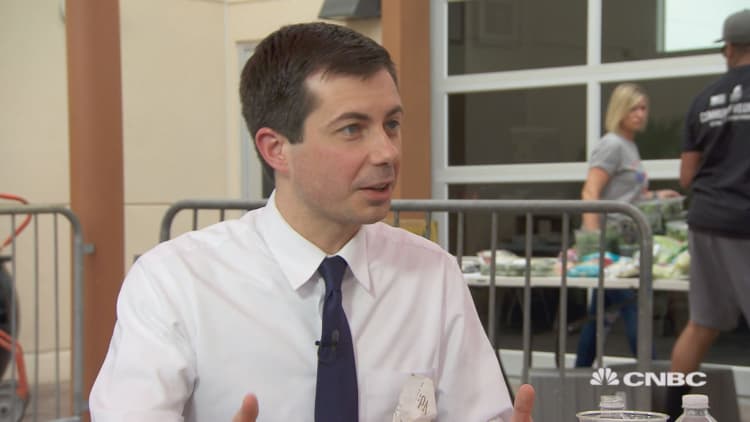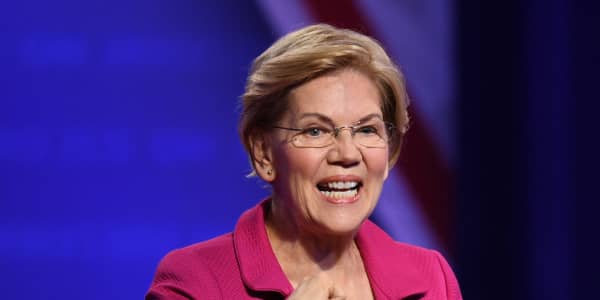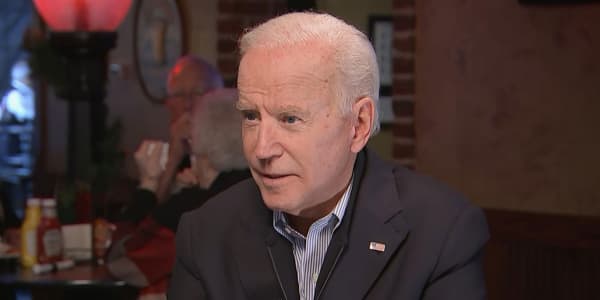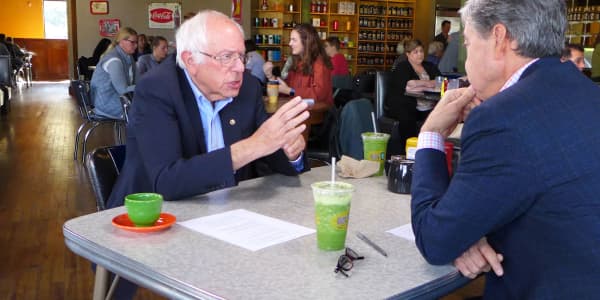
Rising Democratic star and 2020 presidential hopeful Pete Buttigieg sat down with CNBC's John Harwood for an extensive interview. Here is their exchange on what it would mean for the mayor of South Bend, Indiana, to become the first openly gay president.
John Harwood: When Barack Obama ran in 2008 to be the first African American president, he chose not to emphasize that fact because he thought it would be counterproductive. Are you going to approach this race with the same attitude about potentially becoming the first gay president?
Pete Buttigieg: When Chasten and I started dating, and eventually got married in South Bend, we weren't exactly sure how the idea of the first-ever male first gentlemen, let alone a same-sex one, would be received in town. And pretty quickly, we just hit on the idea of expecting to be treated like any other couple. We'd act like any other couple, we'd hope people would treat us that way. And for the most part that's what people did.
Look, being gay is part of who I am, and it's part of my story, and it has shaped me in some important ways. It's also just part of my story. It's not all of who I am. And what I hope to do is turn to that story if it helps people understand how I might be able to relate to others with radically different experiences, but certain things in common.
But I'm not running to be president for any one group. If I thought to myself just in terms of identity lines, it'd be a pretty lonely place, because I'm the only Maltese-American Episcopalian gay veteran that I know. If we get identity right, then it can actually be a source of solidarity with people whose identity is completely different. I think divisive identity politics is exactly what's being practiced by the White House today, and it's using race to divide us within, for example, the middle and working class. We've got to turn the page from that.
Read more: Vice President Mike Pence responds to Pete Buttigieg's criticism of his gay rights record





